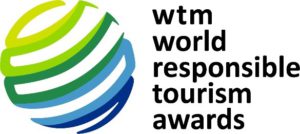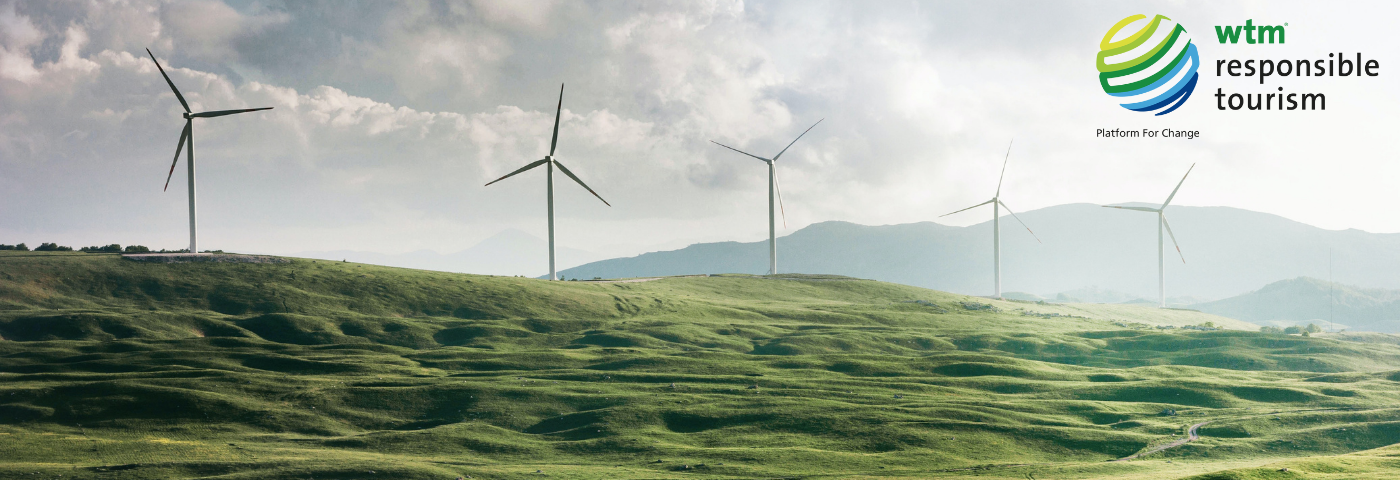WTM London this year opens on the same day as COP26 in Glasgow. Given the mounting crisis of climate change and the challenge of adapting to it, it is no surprise that the Responsible Tourism programme includes a session on carbon. Procrastination on climate change has been both deadly and expensive
COP15 brings together the countries which are party to the Convention on Biological Diversity. The first part of the conference (virtual) will be hosted from Kunming, China, concluding on October 24th, a week before WTM, London. The second part of COP15 will be held in Kunming in April-May 2022. The Post-2020 Global Biodiversity Framework The objective is to achieve transformation in society’s relationship with biodiversity, ensuring that by 2050 the shared vision of ‘living in harmony with nature’ is fulfilled. We shall be considering how tourism can contribute to achieving these ambitions and looking at how our sector compares with other industries.
Destinations have been hit hard by Covid and many are looking at how they build back better, avoiding the problems of over-tourism and adapt to the consequences of climate change
The Responsible Tourism programme at WTM London 2021
There are three keynote panels and the presentation of the WTM Responsible Tourism Awards on November 1st and additional keynote interviews and panels available on-demand over the show’s three days.
The November 1st programme
15:30 – 16:15 Decarbonising the Travel and Tourism Sector
An expert industry panel will discuss the most efficient ways in which aviation, cruising, accommodation and ground transport can reduce their emissions and meet the global targets to avoid damaging our planet. Moderator Harold Goodwin, WTM’s Responsible Tourism Adviser.
This panel will draw on the conclusions of the decarbonisation panels held on October 8th, see below.
16:15 – 17:00 How can the travel and tourism industry contribute more to conservation?
Last year we asked at WTM Africa: Tourism and Biodiversity, Friend or Foe? In London, we want to ask what the industry needs to do to increase its positive impacts and reduce the negative.
Moderator Dr Matt Walpole, Global Strategist, WWF-International
17:00-17:30 Destination Resilience
Overtourism, Covid and extreme weather events, which damage destinations and endanger life, are major challenges in destinations. An expert panel will share with us how they are addressing these issues.
Moderator Harold Goodwin, WTM’s Responsible Tourism Adviser.

17:30 The 2021 WTM Responsible Tourism Awards
Presentation of the India, Rest of the World and Global Awards
The October 8th programme during Dcarbonise Week
On October 8th WTM Responsible Tourism has three panels in the Dcarbonise Week, a pre-COP26 week-long Virtual Sustainability Summit,
10.00 – 11.00 Fossil Fuel is why Aviation is Travel & Tourism’s Achilles Heel. Is Hydrogen the Answer?
The problem is not flying. The problem is the fossil fuel that is used. The aviation industry needs to transition urgently to zero carbon flying. Aviation is important to the outbound tourism industry of the developed world; it is vital to the livelihoods of families and the foreign exchange earnings of many Small Island Developing States and developing countries, nations without a domestic tourism industry. The latest research reveals that international aviation is responsible for 3.5% of anthropogenic climate forcing, less than Russia more than Japan. In March 2020, the respected German consultancy Roland Berger forecast that if other industries decarbonise in line with current projections, aviation could account for up to 24% of global emissions by 2050 unless there is a significant technological shift.
There is a debate about carbon offsetting and Sustainable Aviation Fuel from biofuels and waste. These are solutions favoured because they facilitate business as usual. They do not require a technological shift. In January this year, the Fuelling Flight Project, which includes easyJet, IAG, Air France and KLM, pointing the “risk of massive capital investments in things that increase emissions compared to fossil fuels and/or that become stranded assets”. They called for higher sustainability requirements to be set by the European Commission
We shall begin by reviewing Sustainable Aviation Fuel from biofuels and waste, battery-powered electric flight and reforming Air Traffic Control to increase the efficiency of flight operations. Then we will look at the more radical alternative: Hydrogen. Hydrogen can fuel aircraft in two ways. Hydrogen can be burnt in an engine or used in a fuel cell that combines hydrogen and oxygen to produce electricity, heat, and water or to make drop-in synthetic sustainable aviation fuels (synfuels). Power-to-liquid fuels (PtL) or synfuels are drop-in replacements for fossil-based kerosene and require no significant aircraft or engine changes.
In September 2020, Airbus revealed three concepts for the world’s first zero-emission commercial aircraft which could be flying by 2035. We have brought together a panel to discuss the prospects for hydrogen-powered flight, the challenges and opportunities.
Moderator Harold Goodwin, WTM’s Responsible Tourism Advisor
Jane Ashton, Sustainability Director, easyJet PLC, with extensive tour operating experience.
Keith Bushell, UK Environmental Affairs stakeholder manager at Airbus
John Strickland, Director at JLS Consulting with major airlines
11.30 – 12.00 Reducing Carbon Emissions in the Accommodation Sector
Hotels and other types of accommodation are responsible for 2% of the 5% of the global CO2 emissions from the tourism sector (UNWTO). With expert panellists from major hospitality groups, we shall discuss best practices in reducing emissions in designing and building new hotels and retrofitting existing properties. Are zero-emissions hotels possible? Is the hospitality sector making progress fast enough to achieve the Paris targets?
Moderator Harold Goodwin, WTM’s Responsible Tourism Advisor
Eric Ricaurte – Founder & CEO, Greenview, Singapore
HC Vinayaka VP – Technical, EHS & Sustainability: ITC Hotels, India
Claire Whitely, Senior Sustainability Manager, Sustainable Hospitality Alliance
12.30 – 13.00 Reducing Carbon Emissions: Tour Operators, Ground Handlers and Transport Providers
Tour Operators, both inbound and outbound, make choices on behalf of the travellers and holidaymakers for whom they provide transport services. This is the case both for the tours and excursions included in the package and in selecting and packaging the optional excursions and activities offered in the destination. On this panel, Intrepid will talk about how they decarbonised the trips they sell, we shall hear about how TO-OT Bus has decarbonised and from Much Better Adventures about how they have measured and managed the carbon emissions arising from their business.
Moderator Harold Goodwin, WTM’s Responsible Tourism Advisor
Sam Bruce, co-founder of Much Better Adventures
Dr. Susanne Etti (she/her) is the Environmental Impact Specialist at Intrepid Travel.
Arnaud Masson – Tootbus, The 1st 100% Low Emission Fleet.


